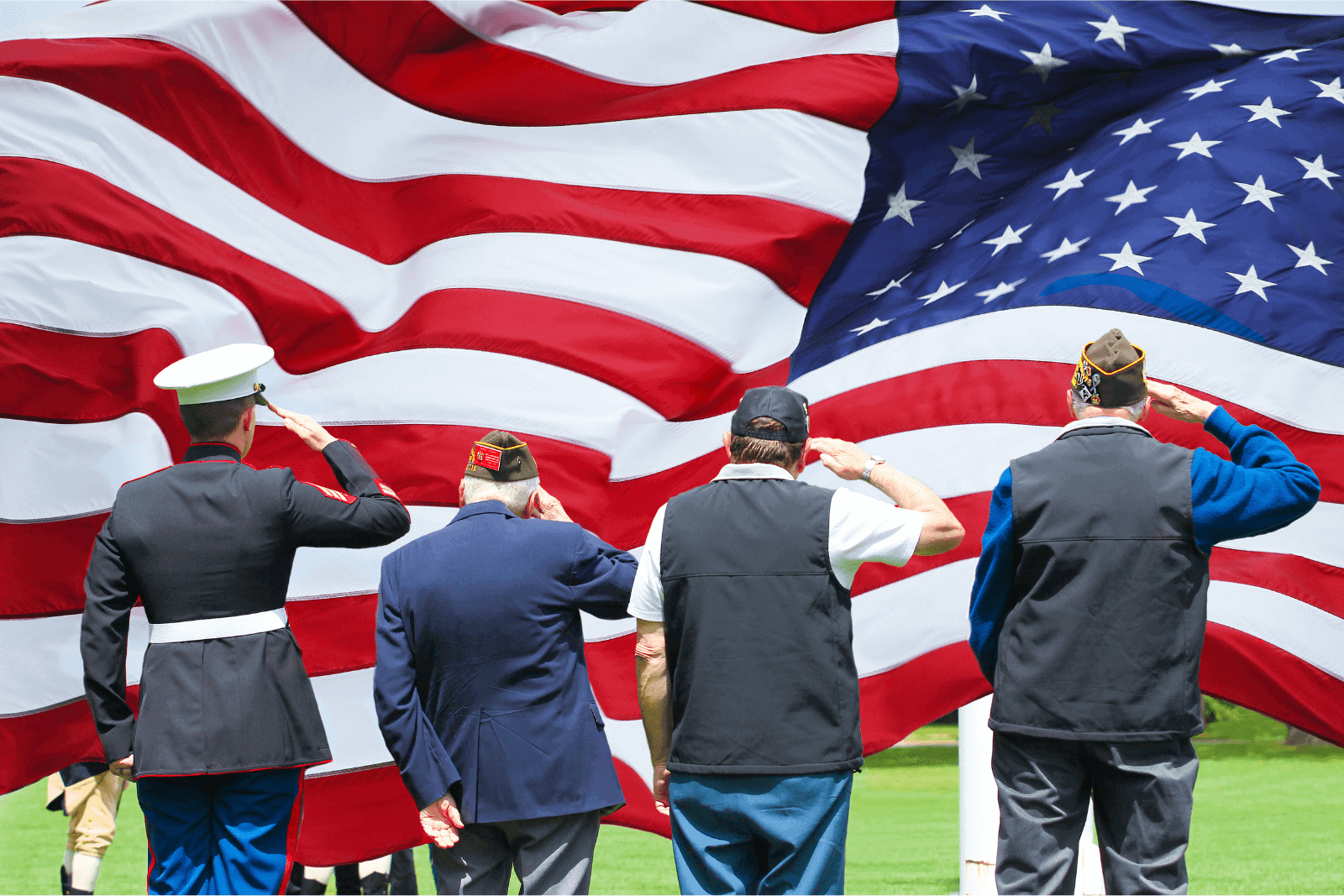
Let’s dive into a topic that often goes unnoticed but affects a significant portion of our veteran heroes – hearing loss. Our veterans have sacrificed so much for our freedom, and it’s crucial that we understand the unique challenges they face, including the silent battle against hearing loss.
Veterans Have a High Risk of Hearing Loss
War zones are extremely loud. With explosions, gunfire, and all sorts of machinery in the mix, it’s an environment where protecting your hearing is easier said than done. That’s why veterans often find themselves at a higher risk of hearing loss compared to others.
Combat situations are filled with high-intensity sounds. The constant barrage of gunfire, artillery blasts, and explosions can do immediate and long-term damage to a soldier’s hearing. At the same time, explosive devices create shockwaves that don’t just cause physical harm – they also damage the delicate structures inside the ear.
Many veterans also sign up for multiple tours of duty, and each one exposes them to dangerous noise levels. This ongoing exposure can lead to more severe and lasting hearing loss.
Military Personnel and Hearing Protection
While military personnel are issued hearing protection, using it isn’t always practical in the chaos of combat. Sometimes, communication and situational awareness demand leaving ear protection behind, which significantly increases the risk of hearing damage.
What Hearing Loss Means for Veterans
Hearing loss isn’t just a physical issue for veterans, it can have wide-ranging effects on their overall well-being. Hearing loss can make it difficult to have clear communication with loved ones. It makes maintaining relationships and connecting with family and friends a real challenge. Veterans dealing with hearing loss often grapple with depression, anxiety, and loneliness. The frustration and stress of living with hearing troubles can take a toll on their mental health.
Finding or keeping a job can be tough for veterans with hearing loss. It can limit their financial independence and stability, creating additional stress. Hearing loss can also impact quality of life, as veterans may struggle to enjoy activities they once loved, like music, sports, or even simple conversations.
Making a Difference for Veterans
Supporting veterans with hearing loss is one of the best ways we can give back. Regular hearing check-ups can help identify hearing issues early on. The sooner we spot hearing loss, the more effectively we can treat it and provide rehabilitation.
Hearing aids can also make a huge difference. Today’s hearing aids are a far cry from the clunky devices of the past. They’re versatile and can significantly boost a veteran’s ability to communicate and participate in daily life. Hearing aids are designed for a range of listening environments and can match your hearing needs. For veterans dealing with severe to profound hearing loss, cochlear implants are game changers. These little devices can provide access to sound and speech they may have thought were lost forever.
Finally, auditory rehabilitation programs, like auditory training and speech therapy, help veterans adapt to their hearing loss and develop effective communication strategies. Peer support is also invaluable. Veterans who’ve experienced hearing loss can offer guidance, empathy, and practical advice to their fellow servicemembers.
Accessibility for Veterans with Hearing Loss
Ensuring that public spaces, transportation, and workplaces are accessible to veterans with hearing loss is vital. Things like captioning and sign language interpreters should be readily available for clear communication. Advocacy efforts can help raise awareness and promote policies that support veterans with hearing loss.
Supporting Our Veterans
Hearing loss in veterans is a profound issue that often flies under the radar. As a society, we must recognize the sacrifices made by these brave men and women and ensure they receive the support and care they deserve. By understanding the causes of hearing loss in veterans and taking proactive steps to provide early detection, treatment, and rehabilitation, we can help them regain control over their lives and honor their service.
Are you a veteran or you do have a loved one who served our country? Visit us for a hearing test and find out more about your hearing loss. Together we’ll get a clearer picture of your hearing needs and suggest treatment options. We’re here to help guide you toward a future of better hearing.
